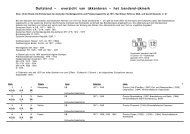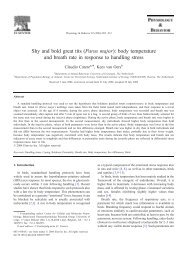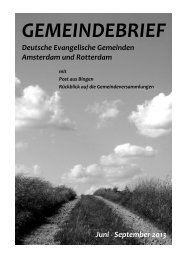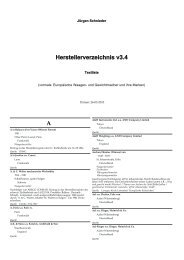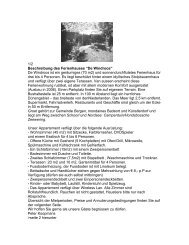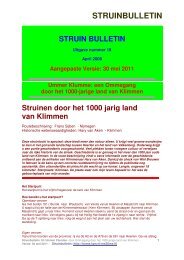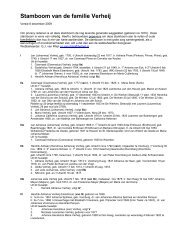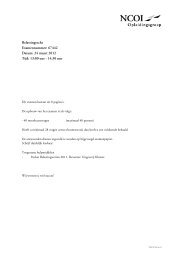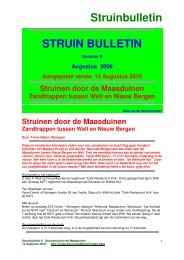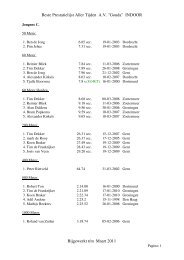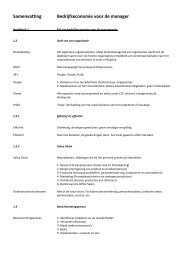The Makassar Malays - Cambridge Journals
The Makassar Malays - Cambridge Journals
The Makassar Malays - Cambridge Journals
You also want an ePaper? Increase the reach of your titles
YUMPU automatically turns print PDFs into web optimized ePapers that Google loves.
408<br />
heather sutherland<br />
slaves away to the King of Bone. But Ince Maulud responded with simple answers to such<br />
accusations of bad faith. He claimed there had been no people in his house who could have helped<br />
the beleaguered Dutchmen, and that the slaves had not been given away, but had fled. 61<br />
Subsequent questioning, however, indicated that Ince Maulud found himself in a delicate<br />
political situation. Although he had been told that the ruler of Bone was planning an incident in the<br />
market to humiliate the Dutch, he had neglected to warn the authorities. When asked why, he<br />
replied that his information came from a mixed Malay–Moor, a follower of a Buginese nobleman,<br />
who was also in the service of the translator Gerrit Brugman. Consequently, Ince Maulud had<br />
presumed the Dutch were aware of the plot. ‘Translators’ such as Brugman were, after all, the main<br />
links between the VOC and local states or communities. 62 Ince Maulud was also asked why, when<br />
Brugman had given him the use of Company rice fields (no doubt as a perquisite of office), did he<br />
then give the produce to the King of Bone? He explained that the Buginese had come and taken the<br />
harvest. Finally, the Dutch inquired why he failed to pay his respects to the VOC authorities on the<br />
customary feast days. Because he was ashamed, he replied, as he had lost all his possessions. 63<br />
It is of course possible that Ince Maulud’s excuses were genuine. But the pattern suggests<br />
another interpretation: that either willingly or unwillingly, Ince Maulud was acknowledging the<br />
authority of the Bugis ruler of Bone. Since the conquest the King of Bone had maintained a house<br />
close to <strong>Makassar</strong>, at Bontoalaq, and spent months there every year; this gave him every opportunity<br />
to expand his influence in the port-town’s kampung. For example, Bone’s rulers were able to<br />
demand services from the Wajorese in <strong>Makassar</strong>, undermining the authority of the head of that<br />
community, the matoa. <strong>The</strong> fact that, coincidentally, the Bone kings also bore by right a high title<br />
from the Bugis state of Wajo reinforced their claims, heightening tensions between matoa and<br />
court. 64 <strong>The</strong> temptation must have been great for them to seek similar influence over that other<br />
prominent Muslim commercial group, the <strong>Malays</strong>. It is clear from the line of questioning that this<br />
was the suspicion of <strong>Makassar</strong>’s Dutch authorities. Ince Maulud did not survive long as Kapitan,<br />
being replaced in 1728. 65<br />
Ince Maulud’s successor, Ince Samba, hardly did any better. He was appointed in 1728 but<br />
dismissed by Governor Arrewijne in December 1733 on the grounds that he was addicted to opium.<br />
His replacement was the ‘free Malay’Ince Bendak, 66 a descendant of Datuk Maharaja Lela, and hence<br />
of the highest birth. His daughter’s marriage to the wealthy trader Ince Ali Asdullah was to have<br />
dramatic consequences (see below); it also secured his descendants’ grip on the Malay community<br />
for over a century and a half.<br />
<strong>The</strong> position of Kapitan Melayu had its privileges and obligations, as did those of the other<br />
community headmen. 67 Ince Cukka had received the right to collect fees for registering property,<br />
and one of his successors as Kapitan, Abdul Kadir (see below) complained in 1768 that a proposal to<br />
remove this right to levy fees on house sales would further reduce his ‘sober income’. <strong>The</strong> percentage<br />
on the sale of the simple bamboo dwellings in Kampung Melayu did not amount to much, and<br />
61 ARNAS Mak.313/1.<br />
62 For another example of the translator’s position, see Noorduyn, ‘<strong>The</strong> Wajorese Merchants’ Community’; on their<br />
legal role,VOC 3150 ff. 163-8.<br />
63 ARNAS Mak.313/1.<br />
64 Noorduyn,‘<strong>The</strong> Wajorese Merchants’ Community’; this expansionist trend by Bone continued through to the later<br />
nineteenth century (Heather Sutherland, ‘Power and Politics in South Sulawesi: 1860-1880’, RIMA, 17 [Winter/Summer<br />
1983]: 161-207).<br />
65 ARNAS Mak.313/1.<br />
66 ARNAS Mak.163 f. 121.<br />
67 Noorduyn,‘<strong>The</strong> Wajorese Merchants’ Community’.





